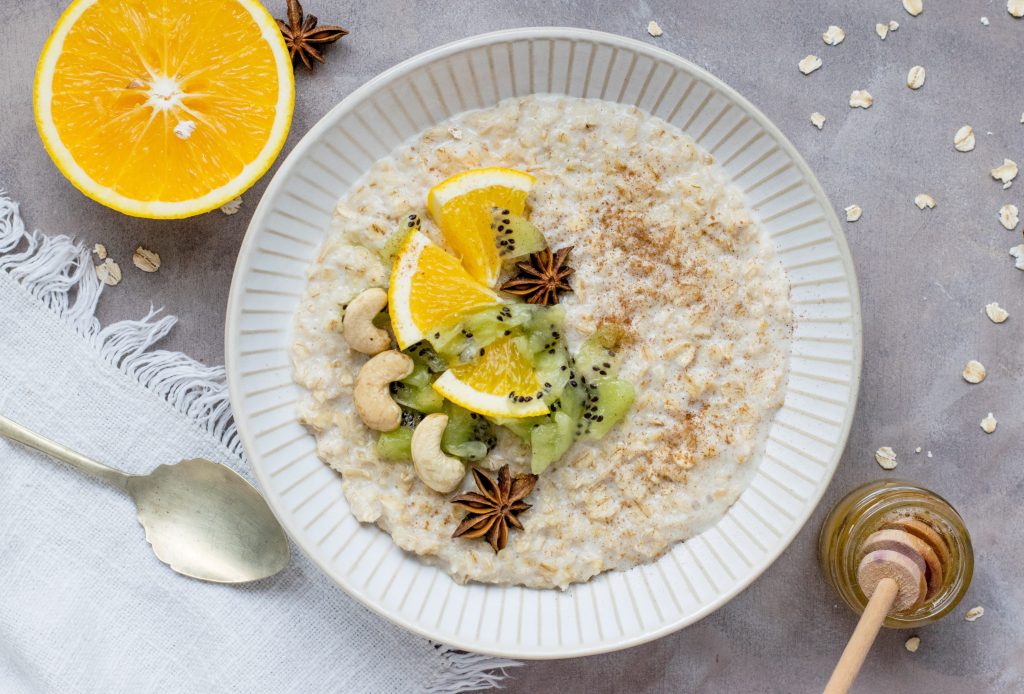
Dietary Fiber | Soluble vs. Insoluble | Digestion | Constipation | Cure
Dietary fiber is a familiar term to almost everyone. However, only a few people know how dietary fiber affects digestion.
Since conventional wisdom claims that dietary fiber is essential for “healthy” digestion, many people think they need to eat more fiber if they suffer from constipation.
Today, we’ll assess if this widespread approach can work based on current studies.
What Is Dietary Fiber?
Dietary fiber is the carbohydrate portion of plant foods that the human body cannot digest. Therefore, it is an anti-nutrient that reduces the absorption and digestion of food.
Although dietary fiber in natural foods can provide legitimate benefits, the assumption that it is mandatory for healthy digestion is a truism.
Because of this supposed property, people consistently conclude that eating more fiber can help with constipation. We will look closely at what science says about this in this article.
To understand dietary fiber’s role in digestion and constipation, we must first explain the difference between soluble and insoluble fiber.
Soluble vs. Insoluble Fiber
There are two main types of dietary fiber. And both soluble and insoluble fiber exert unique effects in the course of digestion (Vanhauwaert et al. 20151):
- Insoluble fiber makes stool firmer, increases its bulk, and accelerates transport through the gastrointestinal tract.
- Soluble fiber absorbs water and forms a gel-like substance, which slows digestion. Because, unlike insoluble fiber, intestinal bacteria can ferment it, soluble fiber increases its mass.
When soluble fiber bulks up food, it reduces energy density, promoting satiety. Insoluble fiber can also contribute to satiety by increasing the volume of the stomach.
After intestinal bacteria ferment soluble fiber in our colon, they promote short-chain fatty acid production and bloating.
On the other hand, insoluble fiber is more resistant to bacteria, cannot be fermented, and adds volume to stool.
How Soluble Fiber May Aid Digestion
Accordingly, natural foods with soluble fiber offer the advantage of slowing nutrient absorption.
In addition to improving satiety, they can reduce the blood sugar and insulin response induced by carbohydrates in natural foods.
With this in mind, a study administered the same amount of carbohydrates and calories to two groups of type 2 diabetics.
As a result, they found significantly lower blood glucose and insulin spikes in the group with a higher amount of fiber in their diet (Chandalia et al. 20002).

For example, beans and berries are foods that naturally contain soluble fiber.
Also, avocados represent an outstanding example because they contain hardly any carbohydrates, abundant electrolytes, vitamins, healthy fatty acids, and soluble fiber.
Moreover, they help absorb fat-soluble nutrients from other foods.
Accordingly, one study found that the body absorbs about 3-5 times more antioxidants and carotenoids if avocados accompany salads (Unlu et al. 20053).
Consequently, natural foods with dietary fiber are valuable in a healthy diet.
In contrast, highly processed foods often remove protective and valuable factors such as dietary fiber or healthy fats.
With this in mind, we will deduce why supplementation with fiber might cause a more severe digestion issue based on further studies.
Can Too Much Fiber Cause Constipation?
Researchers from Singapore studied the effect of reducing dietary fiber on patients with idiopathic constipation. For this purpose, they explained the role of dietary fiber in the gastrointestinal tract to 63 patients.
All participants had to adhere to a no-fiber diet during the first two weeks. After that, however, patients could reduce their fiber intake to an appropriate amount.
Then scientists split them up into zero, reduced, and high-fiber diet groups. However, at the beginning of the study, all participants suffered from constipation and distension opening symptoms.
About half experienced additional symptoms such as anal bleeding, bloating, and abdominal pain.
During the six-month study, the different groups each progressed in distinct directions:
- High-fiber diet: all five symptoms in the group increased throughout the study. Also, subjects in this group maintained an average of only one bowel movement per week.
- Reduced-fiber diet: In this group, symptoms of chronic constipation systematically decreased. Thereby, bowel movements’ frequency increased from one per 4.2 days to one every other day.
- No-fiber diet: Surprisingly, all symptoms disappeared in the group that had eliminated fiber. Furthermore, bowel frequency increased from one bowel movement in 3.75 days to one per day.
The study provides evidence that reducing fiber intake reduces constipation and its symptoms.
Therefore, the study suggests that too much fiber induces rather than fights constipation (Ho et al. 20124).
Accordingly, other researchers also point out what should be obvious. After fiber increases the volume of stool, it can worsen constipation (Vanhauwaert et al. 20155).
Anyone who has tried to squeeze a bulky mass through a narrow opening will understand what the researchers mean – simple but on-the-point logic.

How to Fix Constipation from Too Much Fiber
Another study clarifies that a low-fiber diet does not cause chronic constipation.
While increasing fiber intake might help in some rare cases, it generally worsens symptoms, particularly in patients suffering from severe constipation.
Moreover, the researchers point out that no evidence supports another common myth. Increased fluid intake cannot relieve constipation (Müller-Lissner et al. 20056).
Also, dietary fiber does not retain water in the intestine, contrary to popular belief (Stephen et al. 19797).
In summary, dietary fiber performs essential functions in whole foods. However, as a dietary supplement, they cannot aid digestion similarly.
Unfortunately, fiber supplements are sold precisely as digestive or weight loss aids, which they are not.
Although fiber in raw foods helps with weight loss by regulating blood sugar and insulin levels, it cannot do so in this form as a dietary supplement.
For this reason, consuming additional fiber in case of acute constipation is not a good idea. More and firmer stool means, in most cases, more severe constipation.
As a result, one should pay attention to the following hints in case of constipation:
- Do not take fiber supplements
- Avoid foods rich in dietary fiber
- Eliminate processed fiber-enriched foods from the diet
With this in mind, high-fiber foods one should avoid in constipation include legumes, cereals, pseudocereals (e.g., quinoa), potatoes, corn, berries, bananas, nuts, and (chia) seeds.
Accordingly, plant-based does always equal healthy.
Those who take an approach with fewer carbohydrates and more healthy fats, such as a ketogenic diet, are also less likely to suffer from constipation.
Whether exercise effectively helps with constipation is mostly unproven. However, it most likely won’t do any harm.
The Bottom Line
In conclusion, these facts contradict the conventional wisdom on dietary fiber, digestion, and constipation.
However, this is not a new insight. After all, the general perception of a healthy diet still demonizes saturated fat or salt, for example, even though science has long proven otherwise.
Researchers have shown us that getting a big bulky mass through a narrow passage isn’t easy.
Since fiber, in particular, increases the volume of stool, it can’t relieve constipation – quite the opposite.
But this also remains a sticky myth for many more years.
Frequently Asked Questions (FAQ)
What should I do if I ate too much fiber?
If you are constipated, do not eat more fiber since it increases stool volume, worsening constipation.
Does fiber make your poop hard or soft?
Fiber adds bulk to your stool. Therefore it generally worsens constipation. Insoluble fiber is more likely to harden your stool.
How much fiber is too much?
Researchers argue that about 40-70 grams of fiber per day can already be too much, depending on the person.
Can fiber supplements make constipation worse?
Since fiber supplements do nothing but add bulk to your stool, they definitely will worsen constipation.
References
1Vanhauwaert E, Matthys C, Verdonck L, De Preter V. Low-residue and low-fiber diets in gastrointestinal disease management. Adv Nutr. 2015 Nov;6(6):820-7. doi: 10.3945/an.115.009688. Print 2015 Nov. Review. PubMed PMID: 26567203; PubMed Central PMCID: PMC4642427.
2Chandalia M, Garg A, Lutjohann D, von Bergmann K, Grundy SM, Brinkley LJ. Beneficial effects of high dietary fiber intake in patients with type 2 diabetes mellitus. N Engl J Med. 2000 May 11;342(19):1392-8. doi: 10.1056/NEJM200005113421903. PubMed PMID: 10805824.
3Unlu NZ, Bohn T, Clinton SK, Schwartz SJ. Carotenoid absorption from salad and salsa by humans is enhanced by the addition of avocado or avocado oil. J Nutr. 2005 Mar;135(3):431-6. doi: 10.1093/jn/135.3.431. PubMed PMID: 15735074.
4Ho KS, Tan CY, Mohd Daud MA, Seow-Choen F. Stopping or reducing dietary fiber intake reduces constipation and its associated symptoms. World J Gastroenterol. 2012 Sep 7;18(33):4593-6. doi: 10.3748/wjg.v18.i33.4593. PubMed PMID: 22969234; PubMed Central PMCID: PMC3435786.
5Vanhauwaert E, Matthys C, Verdonck L, De Preter V. Low-residue and low-fiber diets in gastrointestinal disease management. Adv Nutr. 2015 Nov;6(6):820-7. doi: 10.3945/an.115.009688. Print 2015 Nov. Review. PubMed PMID: 26567203; PubMed Central PMCID: PMC4642427.
6Müller-Lissner SA, Kamm MA, Scarpignato C, Wald A. Myths and misconceptions about chronic constipation. Am J Gastroenterol. 2005 Jan;100(1):232-42. doi: 10.1111/j.1572-0241.2005.40885.x. Review. PubMed PMID: 15654804.
7Stephen AM, Cummings JH. Water-holding by dietary fibre in vitro and its relationship to faecal output in man. Gut. 1979 Aug;20(8):722-9. doi: 10.1136/gut.20.8.722. PubMed PMID: 488767; PubMed Central PMCID: PMC1412537.
Mag. Stephan Lederer, MSc. is an author and blogger from Austria who writes in-depth content about health and nutrition. His book series on Interval Fasting landed #1 on the bestseller list in the German Amazon marketplace in 15 categories.
Stephan is a true man of science, having earned multiple diplomas and master's degrees in various fields. He has made it his mission to bridge the gap between conventional wisdom and scientific knowledge. He precisely reviews the content and sources of this blog for currency and accuracy.
Click on the links above to visit his author and about me pages.


So if fiber don’t work what does?
Hi Billy,
As already mentioned in the article, it’s not about eating more – like we always tend to think of as good consumers. It’s about eating less fiber. According to the study cited, a zero-fiber diet helps with constipation (*).
If you are wondering what a zero fiber diet is – the carnivore diet is a straightforward approach to eliminate fiber from your diet.
Br,
Stephan